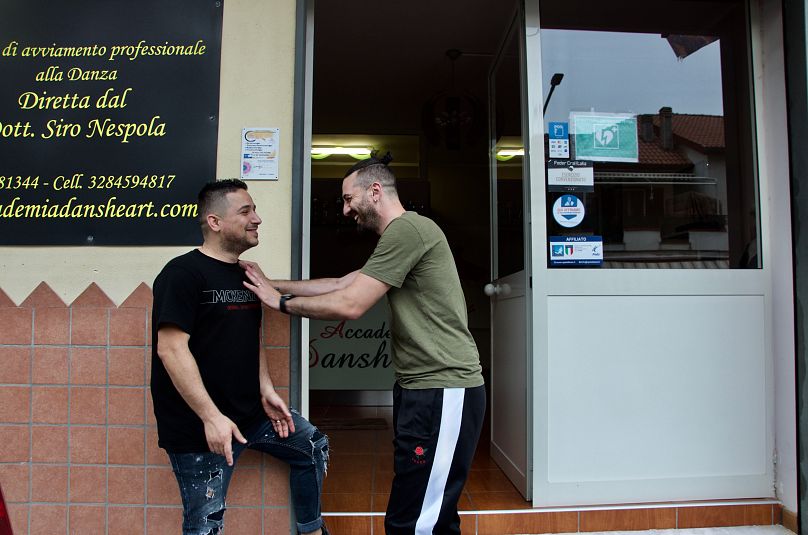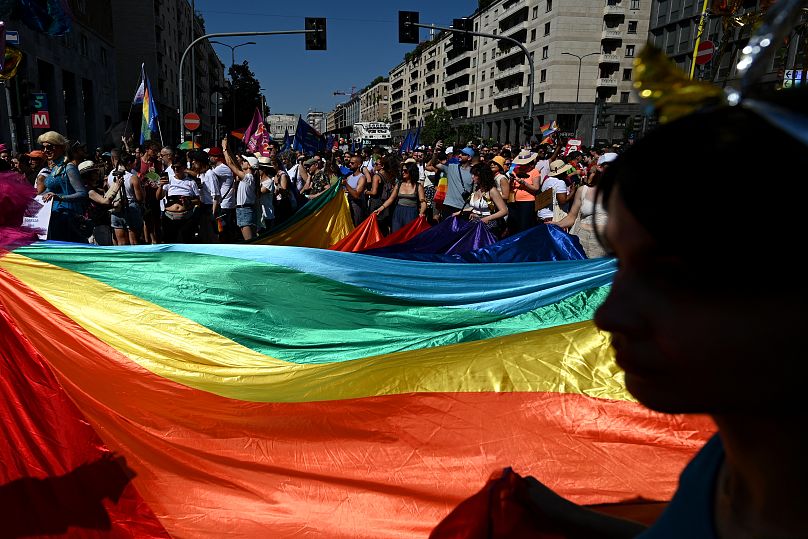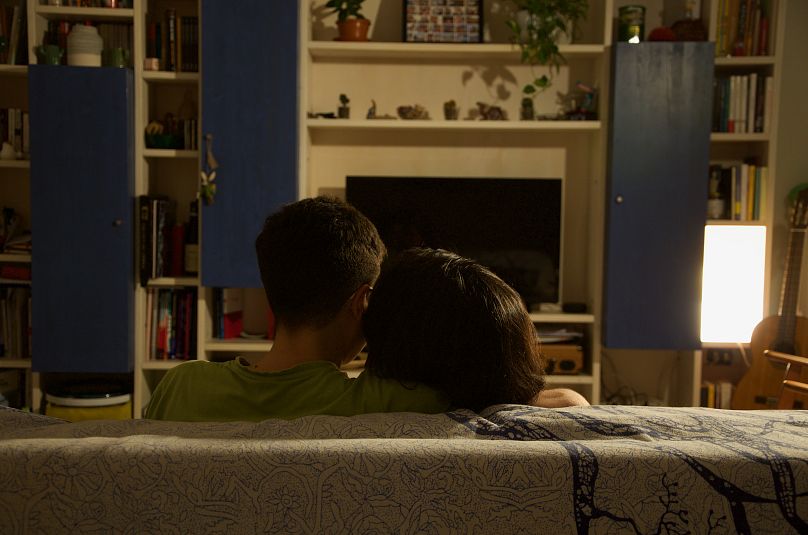In Italy, same-sex couples don't have a legal right to adoption or surrogacy. Now the right-wing government wants to close a loophole allowing them to adopt abroad.
Siro and Giuseppe first met in the early days of online dating in 2006. After exchanging phone numbers, they spoke over the phone for six months before deciding to meet in person.
 ADVERTISEMENT
ADVERTISEMENT
 ADVERTISEMENT
ADVERTISEMENT
“I don’t know what struck me most about him” Siro explains. “At first I was infatuated by his person, aside from just his physical appearance. Obviously I liked his eyes and how he is physically. But I fell in love with what was inside him.”
They eventually moved in together as they continued to build a life of their own. Siro, 38 and Giuseppe 36, manage a dance school outside of Naples in addition to working their regular jobs.
Then, as happens in the lives of many couples, the two started to discuss the possibility of having children.
“It might have been after a movie but one night we started talking about this idea to have a child” Giuseppe says. “And I asked ‘who knows if we could even have a kid.”
Nearly seven years after they first asked themselves that question, they now know how complicated the situation really is.
Rights and responsibilities
In Italy, same-sex couples do not have a legal right to adoption, stepchild adoption or surrogacy. The only opportunity for both parents to have rights with their child is via a legal loophole where the parents can go to another country and have their child by surrogacy.
Now, Italy’s right-wing government is looking to close that opportunity as well, making the possibility for same-sex couples to have children nearly impossible.
Italy has historically lagged far behind its Western European neighbors in its treatment of LGBTQ people. According to ILGA-Europe, Italy ranked 34th out of 49 European countries in terms of rights granted to the LGBTQ community.
Even if the law is not passed, LGBTQ families and people in Italy still struggle to be treated equally under the law.
The country has been condemned by the EU parliament, Human Rights Watch and the European Court of Human Rights over the years for its treatment of LGBTQ people without any affirmative action taken by the state.
For Giuseppe, this leaves him feeling a sense of abandonment from the European community.
“Considering that we are a European country and that they have an obligation to defend us, they [European countries] only use their power to say things” Giuseppe says. “Defend us, actually defend us, not just with words but with concrete actions.”
Setbacks in legislative progress
Recently, Italian politicians tried to make concrete change to laws that would protect the LGBTQ community.
In 2021, a group of politicians attempted to pass a law that would make it a hate crime to attack someone based on their sexual orientation, gender identity or disability. The law was swiftly kicked out of parliament after a vote which ended in the right-wing coalition cheering its failure.
“Since the passing of civil unions in 2016, we basically haven’t progressed” Explains Benny, a 38-year-old university worker who lives with her fiancé, Bianca. “Honestly at this point it looks like we’re going backwards… aside from civil unions, there are no rights for non-heterosexual people. Italy is truly among some of the most backward countries in Europe.”
The situation in Italy for not just LGBTQ individuals but also couples has forced people like Benny and Bianca to face some tough decisions about their future and whether they should stay or leave the country to have a better life.
“I, differently from Benny, would consider leaving Italy to bring up a child in a country that recognizes that they are the child of two people who love each other” says Bianca. “Apart from the fact that this proposed law is extremely discriminatory, it also is an injustice because just because a couple has the fortune to be a man and a woman doesn’t necessarily mean they are adept to be parents.”
Couples who decide to stay however risk having their parental rights being taken away from them even if they thought they were safe.
Parental rights in jeopardy
On June 19th, the prosecutor’s office in the northern Italian city of Padova riscinded the parental rights for 33 same-sex couples. Now only the biological parent has parental rights while the non-biological parent has none. The ruling effects families that registered with the city from 2017 to 2023, including those families that were registered prior to the right-wing government taking power in 2022.
“This is a fight that concerns everyone” Benny says. “If a discriminatory law like this passes against the LGBTQ community, the next law could be against another community. Everyone needs to be interested in these issues.”
Bianca, who is sitting across from Benny on their couch shakes her head in agreement and chimes in:
“In a civil and democratic society, the rights of all citizens should be legitimized, protected and recognized…the government probably thinks that to keep people in the LGBTQ community at ease, all they have to do is give us a pride parade. But you cant just reduce everything to the month of June to remember that we exist.”
The law against universal surrogacy is still in its initial phases and must pass through multiple channels before it gets passed in a process that could take at least a year if not more.
Despite these challenges, Siro feels a responsibility to stay in the country and fight for the rights of the LGBTQ community.
“If I decide to go to another country, what does that teach my students? Siro says. “That it’s easier to escape? No, we will stay here and fight for our rights. If I open the door and go away, the situation here will never change. Someone has to start, so lets start. We can’t wait for someone else to do it for us.”
Disclaimer: The names Benny and Bianca are pseudonyms as the couple asked to remain anonymous out of fear that they could face repercussions at their places of employment.













